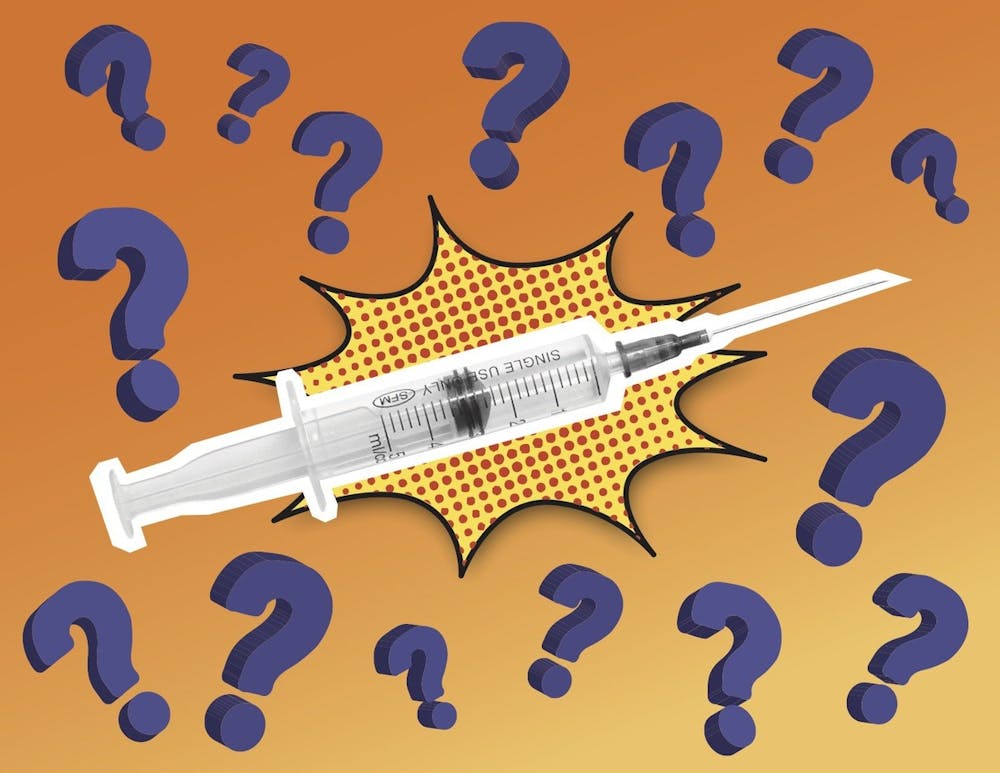One thing has stayed consistent during the U.S. rollout of COVID-19 vaccines: inconsistency.
While some universities are already beginning to vaccinate their faculty, others, like Miami University, haven't received a single dose. And while the former U.S. president praised the rollout of the vaccines, the new one's administration is describing the situation as "worse than we imagined."
Currently, Ohio's vaccination plan divides those who will receive the vaccination into multiple phases. The first phase includes healthcare workers, those above 80 years old and those with serious health conditions.
Chip Hahn, associate clinical professor of speech pathology and audiology, regularly sees patients as a part of his work at the university, but because the state has not designated him as a healthcare worker, he has not had access to the vaccine.
"We are instructors, but we're also treating clinicians," Hahn said. "We do deal with individuals who are often at high risk. You'll have folks that work with infants and children who have feeding and swallowing issues as well as communication issues, and with hearing loss. We deal with older adults who frequently have hearing issues. We do procedures where we're in the person's mouth or ears, exposed to the bodily fluids, so it's really frustrating to me."
Miami is not considered a healthcare provider by the state because the majority of the university's staff and faculty do not work in the medical field. As such, Hahn and his co-workers are not considered healthcare workers despite working regularly with patients.
According to the state's rollout plan, they will not have access to the vaccine until the rest of the university does.
In a recent announcement, Jayne Brownell, vice president for student affairs, said the university expects its faculty and staff to be vaccinated before summer. It could happen earlier, she said, but the university is unsure due to lack of definitive information from the state's health department.
"Most of it is still up in the air," Brownell said. "As you see in national news, the rollout for vaccines is going so much more slowly than anticipated, so we only have a vague timeline of when we may get vaccines."
The university is also in the process of figuring out how to administer the vaccines once it receives them, Brownell said. Miami officials have yet to receive a definitive timeline, so there is not much they can do.
"As is true with everything else related to COVID, it will likely change," Brownell said. "The conversations that they’re having are things like, ‘If it is a two-dose vaccine and there are 21 and 28 days between [each dose], what happens if we get it in April? Is there enough time to vaccinate students here? Do they vaccinate once here and once at home? Do they wait and do it all at home?’"
General Counsel Robin Parker wrote in an email to The Miami Student that, as of Jan. 20, the university has been given no information on when it will receive the first doses of the vaccine.
Enjoy what you're reading?
Signup for our newsletter
Meanwhile, ABC6 reported that Ohio State University (OSU) has already vaccinated hundreds of healthcare workers, including a potential 400 OSU employees. These discrepancies in distribution have been attributed to holiday delays, shipping issues, troubles with preservation and countless other issues.
Hahn and the two other audiologists have had to see fewer patients in accordance with current COVID guidelines, because they have not had access to the vaccine. Only two of the audiologists can be in the clinic at a time, and patients with hearing aids can no longer walk in for quick issues like they previously could — they now have to schedule an appointment for even the smallest issue.
And while many medical professionals have been able to move their practice mostly online, Hahn and his colleagues haven't always been able to do so.
"We have hearing aids that have a smartphone app that allows us to connect so that we can actually make changes here in the office and then send it via the app to their phone," Hahn said. "Unfortunately, a lot of our patients are in older hearing aid technology, where we don't have that capability, so there's still a large, vast majority of our patients where, if they need something, they're going to have to be seen in person. It's not something we can do virtually."
While other health workers in other situations are able to receive vaccinations, Hahn and others in similar situations are far back on the list.
"I understand that there has to be a phased rollout, but I feel like there are some valid exceptions that should be made," Hahn said. "While I understand they're not going to make vaccines widely available to the university, I do feel like it's not unreasonable to wish that the state or whoever's making these determinations made at least a limited supply available for those of us who don't fit that classic mold."




